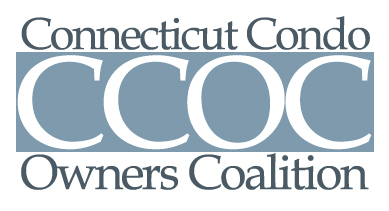Feds And Florida Sue Timeshare Rental/Resale Operation For Deception
Allegedly Told Timeshare Owners They Had Renters or Buyers Lined Up for Their Properties
The Federal Trade Commission and Florida Attorney General Pam Bondi brought legal action against a timeshare rental/resale telemarketing business and its owner for allegedly deceiving thousands of consumers throughout the country into paying up to $2,000 based on false promises that they had buyers or renters lined up for consumers’ timeshare properties, and then failing to deliver promised refunds.
At the plaintiffs’ request, a federal court halted the operation and froze the defendants’ assets pending further litigation.
The case is part of the agencies’ ongoing efforts to stop timeshare scams and protect consumers from fraud and deception in the marketplace. According to the complaint against Edward Lee Windsor and Information Management Forum Inc., also doing business as Vacation Property Marketing and Vacation Property Marketing Inc., the defendants cold-called timeshare property owners and falsely promised they had renters or buyers who would pay a specific dollar amount for the consumers’ properties.
The defendants promised to fully refund consumers’ fees, which ranged from $500 to $2,000, if they did not rent or sell the timeshares as promised, or if consumers asked for their money back within a certain time period.
The complaint alleges that the defendants falsely told consumers they had business relations with major corporations, such as Home Depot and Pepsi, that had an immediate need for the consumers’ timeshare properties.
A telemarketing script filed with the court stated, “What we do is market and advertise the rental and sale of resort properties to corporations who use them for conventions, training seminars, employee perks, business trips as well as their own vacation time . . . the reason that I’ve been calling you is because this weekend there is going to be a major event . . . We currently have over 700 corporate buyers and renters coming into town for this event.”
The defendants allegedly told consumers that they could rent the consumers’ properties for a certain amount, such as $1,800 a week, or that they had buyers willing to pay specific amounts, such as $18,500, within 90 days.
According to the complaint, they falsely told some consumers that they would receive the proceeds from their rentals or sales before or shortly after the charges to the consumers’ credit cards became due. Consumers who sought refunds were often strung along with more false promises to the point that they could not dispute the charges with their credit card providers, and when they were able to dispute charges, the defendants often vigorously contested their efforts to get their money back.
As alleged in the complaint, consumers who were charged fees by the defendants did not obtain renters, buyers, or refunds. In limited instances, the defendants offered consumers a small portion of their money back, but most often they denied refund requests, contending they had fulfilled their agreement by placing an ad on their website, onlinevpm.com.
The defendants allegedly violated the FTC Act, the FTC’s Telemarketing Sales Rule, and Florida’s Deceptive and Unfair Trade Practices Act. The Commission vote authorizing the staff to file the complaint was 5-0. The complaint was filed in the U.S. District Court for the Middle District of Florida, Orlando Division.
The FTC would like to thank its law enforcement partners, the Florida Attorney General’s Office and the Florida Department of Agriculture and Consumer Services, and the Central Florida Better Business Bureau for their assistance in this case.
For more information about timeshare resales, please see Time and Time Again: Buying and Selling Timeshares and Vacation Plans, and Selling a Timeshare Through a Reseller: Contract Caveats.
NOTE: The Commission files a complaint when it has “reason to believe” that the law has been or is being violated and it appears to the Commission that a proceeding is in the public interest. The complaint is not a finding or ruling that the defendants have actually violated the law. The case will be decided by the court.
The Federal Trade Commission works for consumers to prevent fraudulent, deceptive, and unfair business practices and to provide information to help spot, stop, and avoid them. To file a complaint in English or Spanish, visit the FTC’s online Complaint Assistant or call 1-877-FTC-HELP (1-877-382-4357). The FTC enters complaints into Consumer Sentinel, a secure, online database available to more than 2,000 civil and criminal law enforcement agencies in the U.S. and abroad. The FTC’s website provides free information on a variety of consumer topics. Like the FTC on Facebook, follow us on Twitter, and subscribe to press releases for the latest FTC news and resources.






Fraud in general and specifically of timeshare are the order of the day. Customers should be cautious and not be fooled by false promises about investment returns, timeshare resales or anything that sounds too good to be true.
There are good articles on how to use timeshares properly.
http://www.timesharescam.com/timeshare-scams-blog/